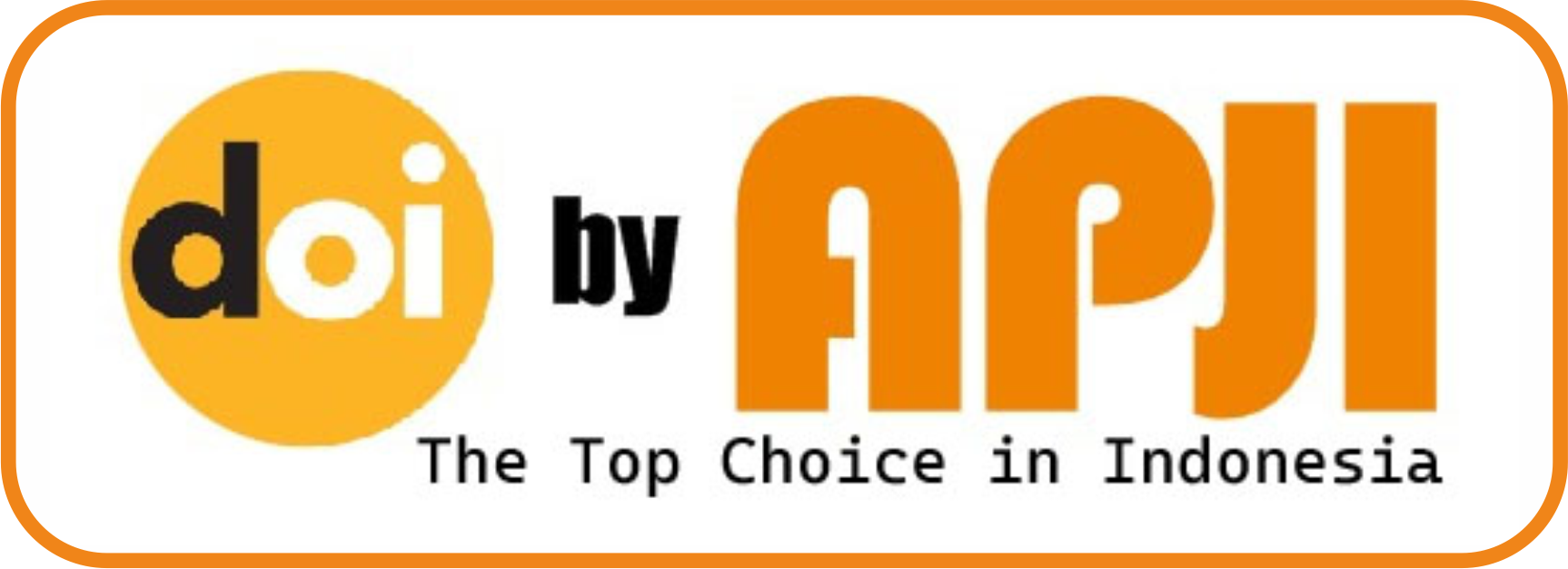Hubungan Pengetahuan Asupan Asupan Karbohidrat Dan Protein Pada Gizi Pekerja PT Kasiromua
Abstract
Background: Nutrition knowledge is knowledge about the selection of ingredients good food and daily consumption. Nutritional status is an expression of person’s nutrition in the form of certain variables, namely poor nutritional status, malnutrition, overnutrition, and obesity. Lack of knowledge about contributions nutrition from various types of food woll cause health and productivity problems in workers it is known that knowledge of nutrition provides provision for workers on how to choose healthy foods and understand that food is closely related to nutrition and health also with their productivity The quality of human resources is a major factor necessary for the successful implementation of national development. Empirical evidence indicates quality of human resources determined fromgood nutritional status, and this is determined by nutritional knowledge, the amount of food intake consumed and the physical activity of a person. Objective: The aim of this study was to analyze the relationship between nutritional knowledge, with nutritional status of workers at PT Kasiromua. Methods: The research design used was cross sectional with total of 35 subjects. Data is obtained directly and virtually through interview methods and anthropometry measurements so that the types of data used are primary and secondary data. The instruments used are microtoise, weight scales Result: Most subjects had adequate knowledge of carbohydrate and protein intake (74.3%). More than half of the subjects (57.1%) had normal nutritional status, namely 20 subjects. Conclusion: The distribution of the relationship between knowledge of carbohydrate and protein intake shows that there is a significant relationship between workers' knowledge of nutrient intake and nutritional status.
References
Adisapoetra I. Masalah dan Strategi Aktivitas Fisik Masyarakat.Jakarta: Seminar Pra Widyakarya Pangan dan Gizi; 2008.
Adriani, M., and Wirjatmadi, B., 2012. Peranan Gizi dalam Siklus Kehidupan. Jakarta: Prenamedia Group.
Almatsier, S., 2009. Prinsip Dasar Ilmu Gizi. Jakarta: Gramedia Pustaka Utama.
Andianto, B., 2010. Faktor yang Berhubungan dengan Produktivitas Kerja Tenaga Kerja di Bagian Pencetakan Kerupuk CV. Faisal Putra. Skripsi. Surabaya: Universitas Airlangga.
Badan Penelitian dan Pengembangan Kesehatan Kementerian Kesehatan RI. Riset Kesehatan Dasar Jakarta: Kementerian Kesehatan RI; 2013
Bakara FS. Pengetahuan Gizi Seimbang, Perilaku Makan dan Status Gizi Guru SMA Negeri 8 Medan Pandau Hulu II Kecamatan Medan Area 2008. [Skripsi]. Medan:Fakultas Kesehatan Masyarakat Universitas Sumatera Utara; 2009.
Demerath, E., W., Sun, S., S., Rogers, N., Lee, M., Reed, D., Choh, A., C., Couch W., Czerwinski, S., A., Chumlea, C., Siervogel, R., M., Towne, B., 2007. Anatomical Patterning of Visceral Adipose Tissue: Race, Sex, and Age Variation. Obesity, Vol. 15, No. 12.
Departemen Gizi dan Kesehatan Masyarakat Fakultas Kesehatan Masyarakat Universitas Indonesia, 2007. Gizi dan Kesehatan Masyaraka. Jakarta: Raja Grafindo Persada.
Doucet, E., and Tremblay, A., 1997. Food Intake, Energy Balance and Body Weight Control. European Journal of Clinical Nutrition, Vol. 51.
Elnovriza, D., Bachtiar, H., and Yenrina, 2009-2010. Hubungan Pengetahuan dan Asupan Zat Gizi dengan Status Gizi Mahasiswa di Asrama Universitas Andalas. Jurnal Kesehatan Masyarakat (Online), Vol. 4, No. 1.
Gumala, N. M. Y., 2011. Tingkat Konsumsi Zat Gizi dan Status Gizi Berdasarkan Karakteristik Pasien di BPK RS Jiwa Provinsi Bali. Jurnal Ilmu Gizi (Online), Vol. 2, No 1,
Harpaz, E., Tamir, S., Weinstein, A., and Weinstein, Y., 2016. The Effect of Caffeine on Energy Balance. De Gruyter, Vol. 28, No. 1.
Kowtaluk, H., 2001. Discovering Food and Nutrition. USA: Mc Graw Hill. Kusuma, G., D., 2011. Faktor-faktor yang Mempengaruhi Produktivitas Kerja pada Pelinting Rokok di Perusahaan Rokok Cemara Mas. Skripsi. Surabaya: Universitas Airlangga.
Rinanti, O., S., 2014. Hubungan Asupan Zat Gizi Makro dan Pengetahuan Gizi Seimbang dengan Status Gizi Siswa- Siswi di SMP Muhammadiyah 1 Kartasura. Skripsi. Surakarta: Universitas Muhammadiyah Surakarta.
Rokhmah, F., Muniroh, L., and Nindya, T. S., 2016. Hubungan Tingkat Kecukupan Energi dan Zat Gizi Makro dengan Status Gizi Siswi SMA di Pondok Pesantren Al-Izzah Kota Batu. Media Gizi Indonesia (Online), Vol. 11, No. 1,
Santosa, G., 2004. Manajemen Keselamatan dan Kesehatan Kerja. Jakarta: Prestasi Pustaka
Setty Prabha, Padmanabha BV, Dodda mani BR. Correlation between Obesity and Cardio Respiratory Fitness. International Journal of Medical Science and Public Health 2013; 2 (2):300-304
Suhardjo, 2005. Perencanaan Pangan dan Gizi. Jakarta: Bumi Aksara.
Suhardjo, and Kusharto, C. M., 1992. Prinsip-prinsip Ilmu Gizi. Yogyakarta: Kanisius.
Suharno, D., 1990. Gizi Kerja pada Masyarakat Kerja Sektor Informal. Jakarta: Departemen Kesehatan Republik Indonesia.

















